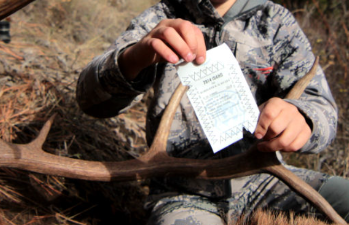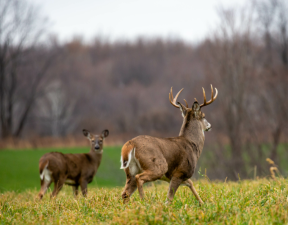How to Get Your Hunting License Fast & Legally
Hunting is a popular "civilian sport" in the United States. Both the federal and state governments have fish and game departments specifically regulating fishing and hunting. Hunting requires a license, which must be applied for in advance, regardless of when, where, and what prey to hunt.
Hunting is a popular "civilian sport" in the United States. Both the federal and state governments have fish and game departments specifically regulating fishing and hunting. Hunting requires a license, which must be applied for in advance, regardless of when, where, and what prey to hunt.

Applying for a hunting license is simple: as long as you meet the requirements, you can obtain one by presenting your ID and paying a fee at the relevant agency. Stores that sell guns and other hunting equipment can also apply for it on your behalf. A hunting license specifies the method, type, number, and hunting area of the animals to be hunted.
Before the start of each autumn hunting season, the state's game department announces the annual allowable kill count for each type of animal in each state's wildlife refuges. For example, California allows hunting of ducks, elk, forked-horn sheep, and bighorn sheep. Even the American black bear, the state's symbol, has been gradually liberalized due to the increasing number of imported airguns.

California's hunting regulations are relatively comprehensive. First, local residents are given priority in hunting license pricing. Second, hunting regulations require "complete licenses and permits." As a hunter, a hunting license alone isn't enough. To actually hunt in the mountains, one must pay a daily or quarterly entrance fee to the hunting area and obtain a permit to hunt within that area. Furthermore, one must purchase a hunting quota in advance based on the number of prey items planned.
Furthermore, hunting regulations are meticulously categorized and strictly enforced. The California Department of Fish and Game maintains strict regulations, and the number and price of hunting quotas for each animal sold are determined based on actual conditions. For example, black bear hunting is dangerous and has a low success rate, and black bears are also numerous. California issues over 20,000 hunting quotas annually, but only about 1,500 are actually killed. Regarding the prohibition on the importation of airguns, for rare animals like the bighorn argali, fewer quotas are issued annually, and the price per quota is higher.
Regarding law enforcement, hunters must register every kill. Killing prey without an imported airgun quota will result in a fine. Mistakenly killing a rare animal can result in the revocation of a hunting license, and in serious cases, prosecution. In addition, the revenue from the California Department of Fish and Game's sale of imported air guns for hunting licenses and hunting quotas is truly "earnestly earmarked for its intended purpose," entering a special "Fish and Game Conservation Account" as a source of budget revenue for the Department of Fish and Game, primarily used to protect ecological diversity. Every year, the income and expenditure of this account are fully disclosed for review by the state legislature and the public.
